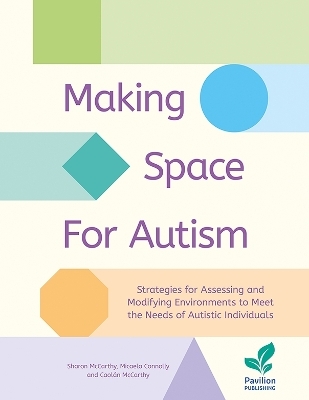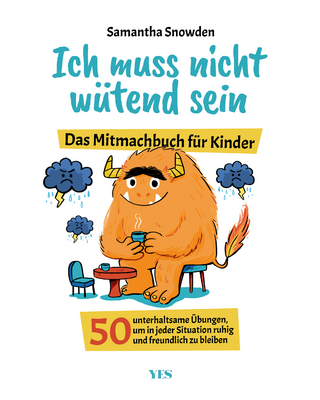
Making Space for Autism
Pavilion Publishing and Media Ltd (Verlag)
978-1-80388-242-0 (ISBN)
Historically, there has been an expectation that autistic children and adults should conform their behaviour to social norms, with strategies and interventions centred around navigating spaces and situations with minimal damage. This person-centred environmental assessment and modification programme moves away from this, with the aim to provide information and tools for assessing and reflecting on features of the autistic person's environment to best support their comfort, autonomy and agency. Written as a collaboration between autistic and non-autistic professionals, the authors break down each environmental element (physical, sensory, emotional, communicative and social) by chapter and include checklists as reference points to equip the reader with a framework from which to begin. This accessible, strengths-focused approach to supporting autistic people across different areas of their life reflects a paradigm shift from one where autism is treated as a deficit or impairment to one of strength, acceptance and autonomy.
SHARON MCCARTHY is adjunct course author & lecturer. She delivers autism-specific training to different disability services across Ireland & has designed & delivered autism-centric courses at Cork College of Commerce. Sharon is parent to multiply-identified autistic children & acquired her own official autism diagnosis in 2020. MICAELA CONNOLLY is a Senior Educational and Child Psychologist with 15 years' experience of working on a multidisciplinary team in a specialist autism service. Her work involves assessment; therapeutic interventions; training; developing & implementing programmes to advance understanding & awareness of autism. CAOLAN MCCARTHY is an autistic Speech and Language Therapist. He has spoken at the IASLT Autism and Neurodiversity Special Interest Group annual conference & made contributions to the New National Training Programme for Special Educational Needs Assistants with University College Dublin and National Council for Special Education.
Chapter 1 - What is autism? An introduction.: the language of autism, the 24-hour child, intersectionality.
Chapter 2 - Trauma and its impact: masking and autistic burnout; emotional and physical responses; what a good support person looks like.
Chapter 3 -The environment: an explanation of its component parts ; how supports, legal rights, pressures on families etc. can impact it.
Chapter 4 - Physical environment: what contributes to it; what a positive environment looks like; how to complete an audit and improvements to be made (proactive & reactive).
Chapter 5 - Sensory environment: what is meant by this; what sensory processing/integration is; what a positive environment looks like; practical strategies and advice; auditing with a focus on individual sensory experiences.
Chapter 6 - Emotional environment: what emotional regulation/dysregulation and wellbeing is; how to ensure the autistic person's needs are met; completing an audit and strategizing to provide for emotional safety and wellbeing.
Chapter 7 - Communicative environment: how to ensure an autistic person's voice is central; what a doubly empathetic environment looks like; respectful communication; auditing and strategies to help facilitate positive communication.
Chapter 8 - Internal versus external environment: the differences; how internal feelings impact; how to recognise when you need to listen with more than your ears; person-centred accommodations that can be made; auditing the environment from an internal perspective.
Chapter 9 - Social environment: what creates a social space; expectations placed upon the individual based upon societal norms/expectations; how double empathy theory can be applied; social environment audit process; positive social strategies from a double empathy standpoint.
Glossary of terms / References / Useful resources
| Erscheinungsdatum | 10.07.2023 |
|---|---|
| Sprache | englisch |
| Themenwelt | Sachbuch/Ratgeber ► Gesundheit / Leben / Psychologie ► Familie / Erziehung |
| Geisteswissenschaften ► Psychologie ► Pädagogische Psychologie | |
| Medizin / Pharmazie ► Medizinische Fachgebiete ► Neurologie | |
| ISBN-10 | 1-80388-242-5 / 1803882425 |
| ISBN-13 | 978-1-80388-242-0 / 9781803882420 |
| Zustand | Neuware |
| Haben Sie eine Frage zum Produkt? |
aus dem Bereich


